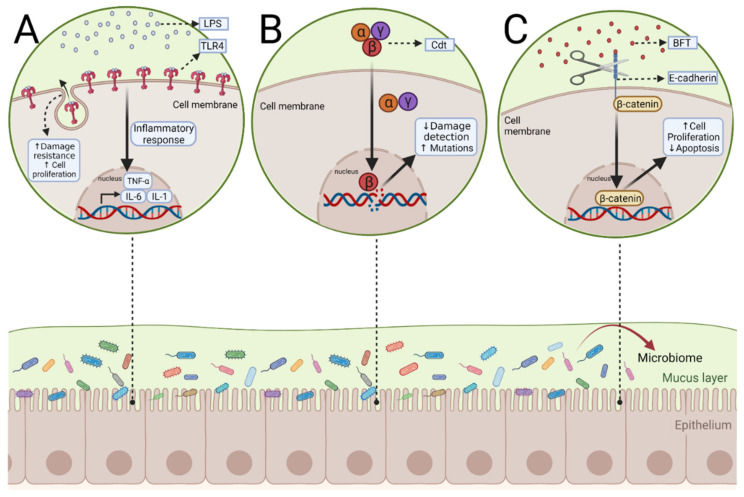Figure 3.
Potential mechanisms of microbial activation of pathways leading to colitis-associated colon cancer. (A) Lipopolysaccharides (LPS) produced by gram-negative bacteria such as F. nucleatum and Salmonella bind to the receptor TLR4. This leads to the transcription of inflammatory cytokines such as tumor necrosis factor (TNF-α), interleukin-6 (IL-6), IL-1, and type I interferons. During IBD, TLR4 is upregulated and may cause CAC, due to its proliferation-promoting ability. (B) In this scenario, the heterotrimer produced by pathogenic gram-negative bacteria, Cytolethal distending toxin (Cdt), can directly induce CAC. CdtB is the only active subunit and can make DNA double-stranded breaks or single-stranded breaks. Chronic exposure to CdtB can reduce the damage response system and increase the chance of mutations. (C) When Bacteroides fragilis toxin (BFT) produced by Bacteroides fragilis binds to E-cadherin, it can cause cleavage of the protein receptor, Β-catenin, normally bound E-cadherin dissociates and becomes a transcription factor for cell proliferation. BFT also delays the apoptosis of intestinal epithelial cells.

